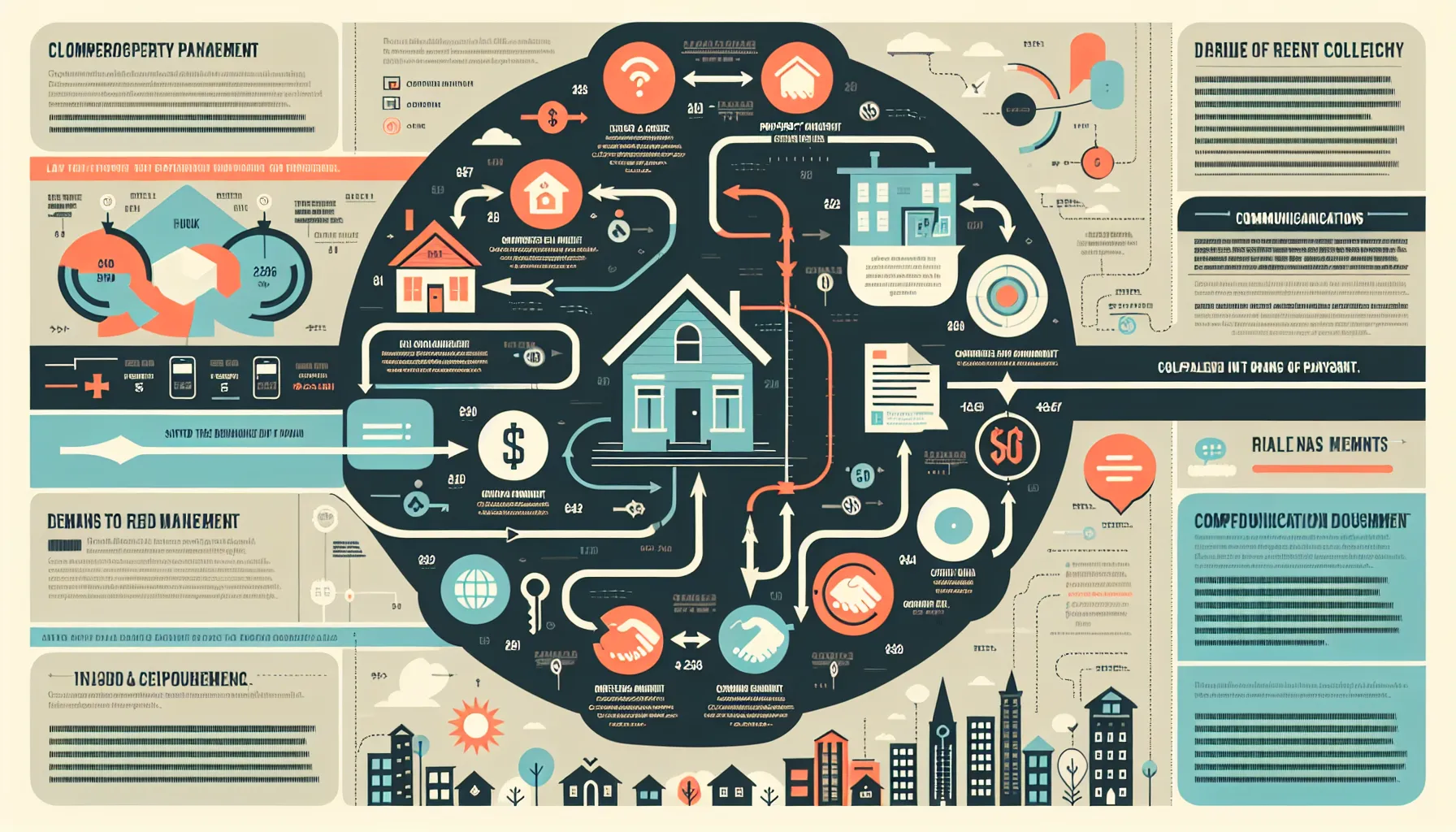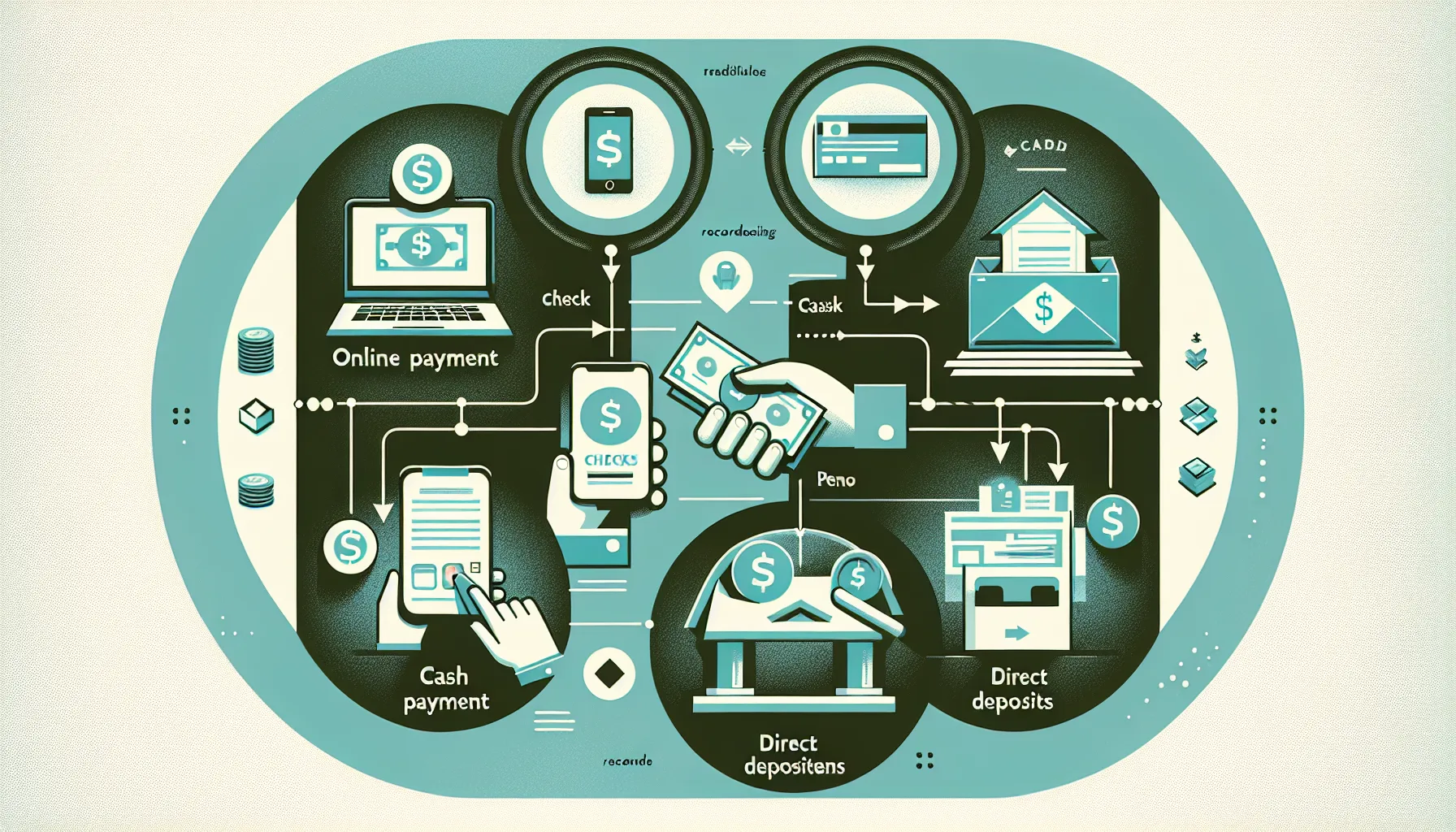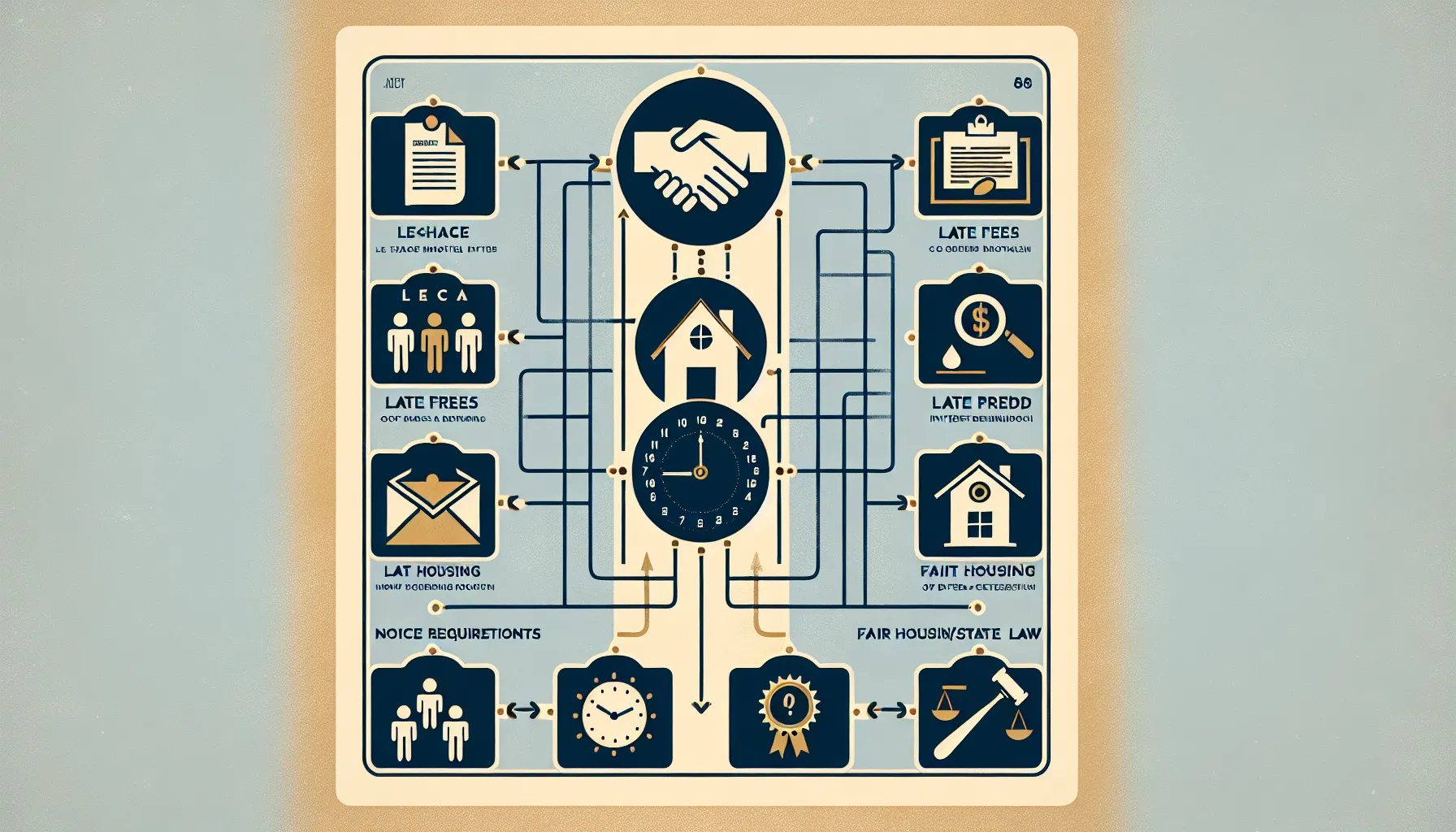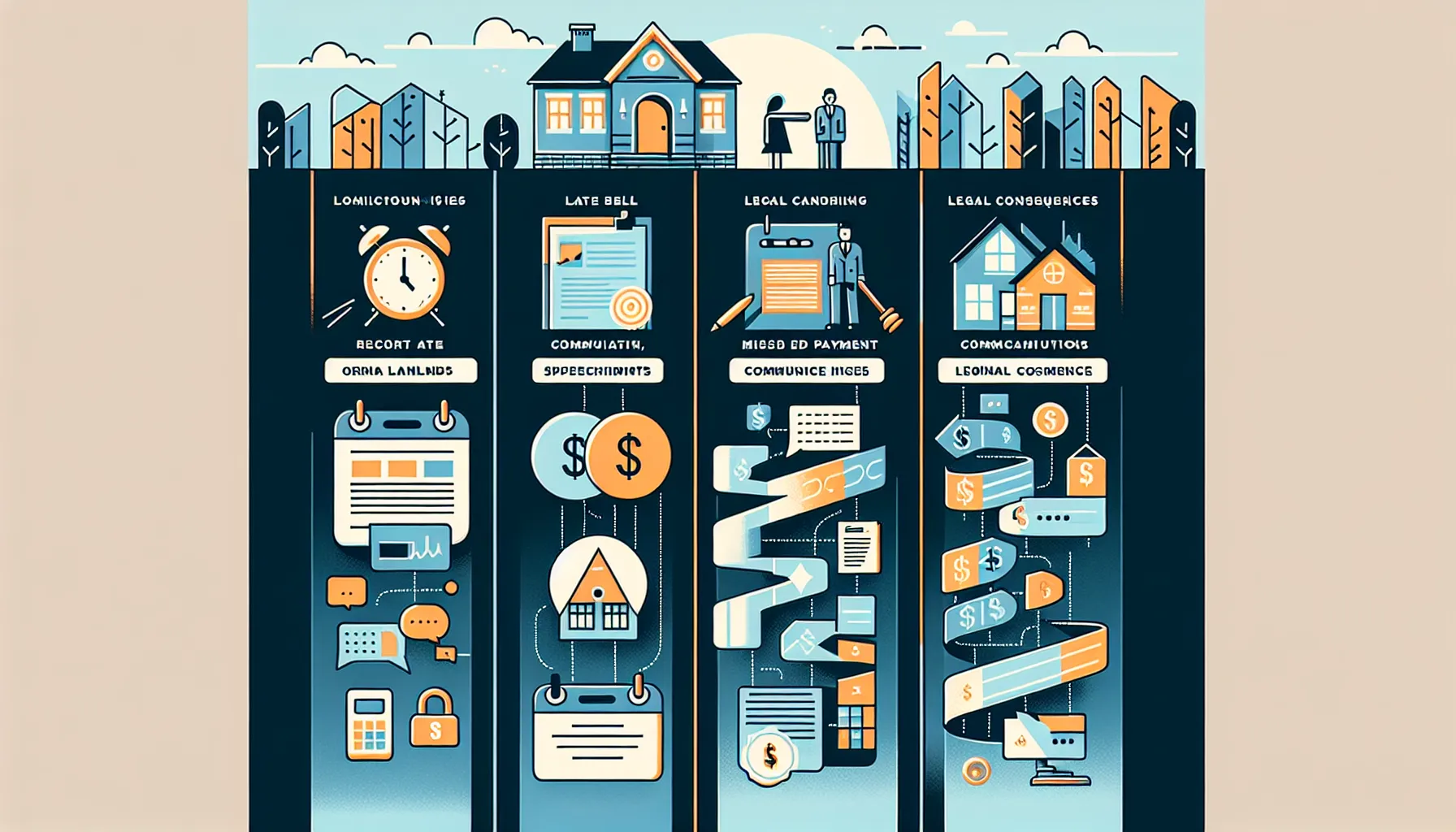Collecting rent shouldn’t feel like an endless source of stress. I’ve met countless property owners, both longtime investors and first-time landlords, who wish this process felt smoother, clearer, and less uncertain. Does rent day bring you anxiety, or are you just hoping to tighten up your collection system? Maybe you’ve recently moved out of the area but want to keep your Orinda property working for you, or you’re juggling multiple rentals and staying on top of everything feels overwhelming.
No matter your situation, you’re searching for both reliability and peace of mind. I get it. Collecting rent in Orinda isn’t just about the money coming in: it’s about protecting your investment, staying compliant, and building strong relationships with dependable tenants. How can you make the most of your Orinda rental properties while keeping hassles at bay? Let’s dig into the essentials of Orinda rent collection, covering proven systems, legal basics, real-world challenges, and practical tips that empower landlords like you to thrive.
Key Takeaways
- Effective Orinda rent collection relies on clear communication, written leases, and well-defined payment policies.
- Online payment systems streamline rent collection, provide secure recordkeeping, and reduce manual errors for Orinda landlords.
- Staying compliant with California rental laws, including proper notice requirements and fair housing regulations, protects your investment.
- Automated reminders and meticulous digital recordkeeping are essential for minimizing late payments and simplifying disputes.
- Hiring a professional property manager can ease the challenges of handling multiple Orinda properties and ensure consistent, stress-free rent collection.
Understanding Rent Collection in Orinda

Rent collection in Orinda has its own rhythm shaped by local demand, California laws, and the expectations of tenants who value responsive management. Whether you manage a single family home or a portfolio of investment properties, my approach always starts with building trust and clarity.
In Orinda, most rental agreements specify due dates (often the first of the month), grace periods, and late fee policies. Clear guidelines set expectations on both sides. Establishing strong communication early helps prevent missed payments and misunderstandings. I always recommend providing tenants with a written overview of payment timelines and acceptable methods.
Local market dynamics matter, too. Orinda attracts tenants seeking long-term stability, often families or professionals, so aligning your process with their needs creates fewer headaches. Add in the high desirability of the area, and you have leverage to set fair terms. Just don’t forget to balance firmness and flexibility: treating every tenant with both respect and consistency has helped me maintain nearly perfect compliance rates across properties I manage.
Common Rent Collection Methods

How you collect rent makes a real difference for both you and your tenants. Over the years, I’ve seen what works best in Orinda’s market. While some landlords prefer traditional methods, many are switching to modern solutions for better recordkeeping and convenience.
Let’s break down the most popular methods:
1. Online Payment Systems
Services like Zelle, Venmo, or property management portals provide quick, documented, and secure transfers. These tools save time and allow both parties to track payments. I always encourage landlords to set up an online system first. Many tenants already handle most bills online, so this feels natural, and you get instant notifications.
2. Checks and Money Orders
Some tenants (especially older or less tech-savvy) feel more comfortable using checks or money orders. The downside? Checks can get lost in the mail, and manual tracking eats up time. Plus, there’s always the risk of bounced checks or long clearing times.
3. Cash Payments
This approach is rare these days, but some tenants still insist. If you choose to accept cash, always provide receipts and keep thorough records, but be aware of the risks, mainly, the lack of clear paper trails.
4. Direct Deposit
A reliable middle ground involves tenants initiating recurring direct transfers from their bank. It’s less common, but secure and predictable.
For investors managing several Orinda properties, streamlining with a digital platform is invaluable. Your time is precious, and fewer manual steps mean fewer errors or missed deposits.
Legal Considerations for Rent Collection

Navigating California’s rental laws can feel overwhelming at first, but skipping assignments on this front could land you in trouble. Let’s make it simple:
Key Legal Points
- Written Lease Agreements: California law does not require written leases for most residential rentals, but I strongly suggest one. It spells out rent, due date, grace period, and consequences for late or missing payments.
- Late Fees: State law doesn’t explicitly regulate residential late fees, but they must be reasonable. Courts generally accept late fees of around 5-6% of the monthly rent, but don’t be tempted to set arbitrary or excessive amounts.
- Grace Periods: California does not require a grace period by default. Check your lease, and remember, some tenants might expect one out of habit.
- Notice Requirements: If rent is late, landlords must issue a “Three-Day Notice to Pay or Quit” before beginning the eviction process. Clearly document all communication in case you need evidence.
- Fair Housing: Discrimination based on race, color, religion, sex, familial status, disability, or national origin is strictly prohibited. Follow all state and federal fair housing laws, no exceptions.
- Rent Control: Orinda is not subject to local rent control, but some properties (mainly older multi-units) may fall under statewide caps on annual increases via AB 1482. Review your property’s status before raising rent.
Stay current: laws can shift. When unsure, consult a knowledgeable property manager or legal advisor.
Challenges Faced by Orinda Landlords

Let’s be honest, collecting rent isn’t always straightforward. Even with the ideal tenant, surprises can crop up. I’ve talked to plenty of landlords who’ve run into these common roadblocks:
- Late or Missed Payments: Life happens. Job changes, illness, or simple forgetfulness can lead to payment hiccups. Having clear rules in your lease and automated reminders helps, but kindness and flexibility in tough moments can make all the difference.
- Recordkeeping Headaches: Juggling manual deposits, checks, and multiple accounts leads to mistakes. Inaccurate records are a real risk when tax season arrives or if a dispute arises.
- Communication Gaps: Tenants who don’t respond to emails or calls can make it much harder to resolve issues. Setting the tone early, clear, open communication, often saves time later.
- Legal Missteps: Overlooking a three-day notice or accidentally violating fair housing laws can be costly. The most frequent legal mistakes I see are misunderstandings about grace periods or late fees.
- Multiple Properties, Multiple Headaches: Investors managing a portfolio notice that small issues multiply quickly. Different payment dates, tenant personalities, and property conditions call for systematized solutions.
None of these challenges are unsolvable. The right mix of empathy, structure, and good tools makes a difference every time.
Best Practices for Streamlining Rent Collection

Efficient rent collection is all about blending technology, transparency, and strong communication. Here’s how I’ve helped landlords in Orinda simplify the process:
Set Up Digital Payment Systems
Most tenants expect to pay rent electronically. Use a trusted online portal or payment platform that records each transaction. This step alone has cleared up at least 90% of past payment misunderstandings in my experience.
Provide Clear Payment Instructions
Include the accepted payment methods and timelines in your welcome packet. Simple, friendly explanations save headaches down the road. Remember, tenants appreciate knowing exactly where their money goes and when.
Automate Reminders
Set up automated email or text reminders before rent is due. This isn’t about nagging, tenants get busy, too, and a gentle prompt is usually appreciated.
Keep Meticulous Records
Track every payment, fee, and interaction digitally. I never rely on memory or loose paper. Clean records simplify tax prep, enable fast dispute resolution, and prove invaluable if legal questions arise.
Perform Regular Property Inspections
Periodic maintenance and inspections serve two purposes: protecting your investment and reinforcing that you’re proactive and fair. Sharing inspection reports with tenants builds trust and accountability, and tenants are more likely to prioritize timely rent payments when they feel cared for.
Encourage Two-Way Communication
Open the door to tenant feedback and concerns. Quick responses help tenants feel valued and foster an atmosphere where timely payment is the norm.
Hire Professional Management (When Needed)
If juggling multiple properties is stretching you thin, or managing rent collection isn’t your strong suit, turning to a local property management expert is smart. They handle everything from marketing (think Facebook and Google AdWords boosts) to accounting, maintenance, and legal compliance for a transparent monthly fee. I’ve seen how the peace of mind outweighs the cost for both absentee owners and seasoned investors.
Conclusion
Managing Orinda rent collection successfully comes down to clarity, consistency, and respect for everyone involved. Whether you handle one property or a growing portfolio, having the right tools and systems is essential for safeguarding your investment and building positive relationships. I’ve witnessed firsthand how simple adjustments, digital payments, clear leases, open communication, turn stressful rent days into predictably smooth transactions.
If optimizing your rental income while minimizing hassle is your end goal, these strategies offer a strong foundation. Are you ready to transform the way you handle rent collection in Orinda? A few small shifts today can bring lasting peace of mind tomorrow.
Orinda Rent Collection FAQs
What are the most popular rent collection methods for Orinda landlords?
In Orinda, online payment systems like Zelle, Venmo, or property management portals are the most popular. They provide security and convenience for both landlords and tenants. Some tenants may still prefer checks, money orders, or direct deposit, but digital options are fastest and easiest to track.
Are there legal requirements for late fees and grace periods in Orinda rent collection?
California law requires late fees in Orinda to be reasonable—typically around 5-6% of monthly rent. State law doesn’t mandate grace periods, but they’re often included in leases. Always have late fee and payment timelines clearly spelled out in your rental agreement to avoid legal issues.
How can I streamline Orinda rent collection for multiple properties?
To simplify Orinda rent collection across several properties, use an online platform for digital payments, automate rent reminders, and maintain meticulous digital records. Consistency and transparency help prevent errors and make managing multiple tenants far more efficient.
What steps should I take if a tenant misses a rent payment in Orinda?
If a tenant misses rent, first communicate with them to understand the issue. Orinda landlords must deliver a “Three-Day Notice to Pay or Quit” before starting the eviction process. Document all communication and follow legal requirements to ensure a fair resolution.
Can I collect Orinda rent payments while living out of town or managing remotely?
Yes, many landlords manage Orinda rent collection remotely by using digital payment platforms and hiring local property managers. These solutions help you track payments, maintain records, and address tenant concerns, giving you peace of mind even if you are not local.
What should I include in a lease agreement to ensure smooth rent collection in Orinda?
To facilitate smooth Orinda rent collection, your lease should specify rent amount, due date, acceptable payment methods, grace periods (if any), late fee policies, and consequences for missed payments. Clear written terms help avoid misunderstandings and legal issues.
